
Gay couple tells web designer,
heck will freeze over
before their party-planning artistry
is available for her launch.
Images created with AI. See Nerd Note below
303 Creative v. Elenis: A New Chapter in LGBTQ Legal History?
Some believe the U.S. Supreme Court's decision June 30 in 303 Creative v Elenis may be one of the most consequential in LGBTQ legal history—a kind of “separate but equal” pronouncement on how the courts should treat LGBTQ people under the law. Others see a “narrow” injury to the right of LGBTQ people to equal protection of the law and one that will come into play very rarely.
The true consequences will likely take many years to realize. That was the case with the notorious and widely harmful 1986 decision in Bowers v. Hardwick.
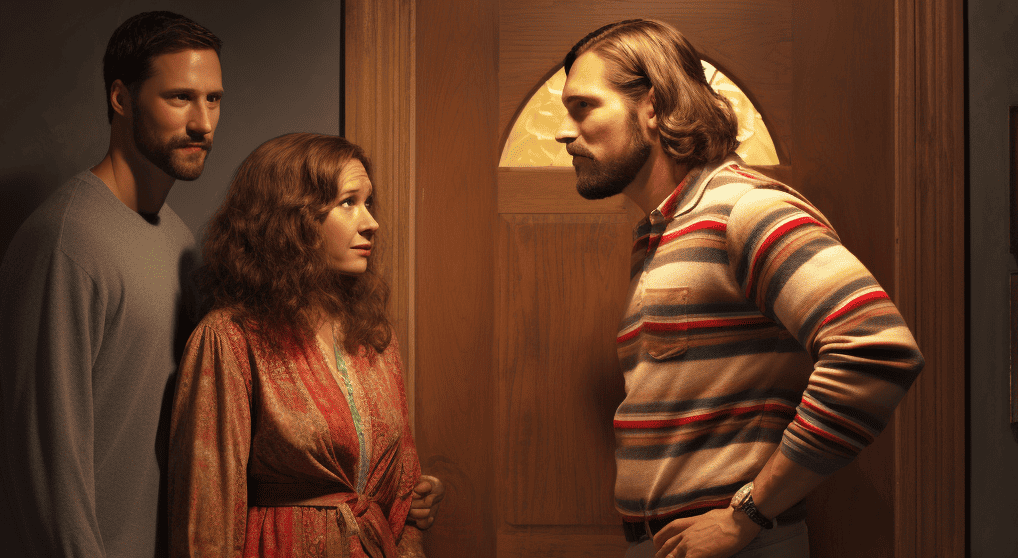
The 5 to 4 decision said states could prohibit same-sex sexual relationships, and it was wielded against LGBTQ people both legally and socially. It took 17 years to overturn. In that 17 years, seven of the nine justices who were on the high court and voted in Hardwick left the bench, including three of the five who had voted to allow bans on same-sex relationships.
One of the five, Justice Sandra Day O'Connor, changed her mind. So, when the vote on so-called “sodomy laws” came up again, in Lawrence v. Texas in 2003, the vote was 6 to 3 to strike down such bans.

Nerd Note on Illustrations
The illustrations with Lisa Keen's reporting on the 303 Creative decision were generated without the author's participation with Midjourney based on a mix of prompts related to the case like “Imagined Gay couple — look like updated Jesus — tells Lisa Smith, a web designer, that heck will freeze over before their party planning artistry will be used to launch her fantasy of a business. Discriminating and the cynical manipulation of the legal system offends their strong beliefs/religion.”
See below for what the prompt based on Biden's reference to a “license to discriminate” produced.
Full note at bottom.
The Path to 303 Creative: The Role of Political Maneuvering in Shaping the Supreme Court
Twenty years have passed since Lawrence, and only one justice who was on the bench in 2003 is still there now: Justice Clarence Thomas. He and five of his conservative Republican appointees voted June 30 to approve the first ever exemption to state laws that prohibit discrimination based on sexual orientation in the public marketplace. Thomas is 75; the other five range in age from 51 (Amy Coney Barrett) to 73 (Samuel Alito).
If each current justice retires at 80 (the approximate average age that a justice retires these days), and if a pro-LGBTQ president is in office when each retires, and if nobody dies, the soonest 303 Creative might be overturned is 2030.
The Alliance Defending Freedom: Accelerated Appeals in the Wake of Increased Conservatism
So, how did this happen?
Mitch McConnell: First, of course, then Republican Senate President Mitch McConnell denied a confirmation vote on Obama nominee Merrick Garland. Then he raced three Trump nominees through, creating a super majority of six conservative Republicans on the court.

“Alliance Defending Freedom”: With six conservatives on the court, the Alliance Defending Freedom, a national conservative litigation group seeking to undermine equal rights for LGBTQ people—and which was consistently losing at the lower court levels– accelerated its efforts to get appeals to the U.S. Supreme Court.
One case it had in the pipeline was 303 Creative v. Elenis. It involved a website designer, Lorie Smith of Colorado who was willing to say that she was opposed to same-sex marriage for religious reasons and that she had “worries” that a same-sex couple might come to her and ask her to design a wedding website for them.
If a gay couple did, she said her Christian beliefs would require her to say no, thus putting her in violation of Colorado's law against discrimination based on sexual orientation in public accommodations.
Unraveling the First Amendment Argument: Assessing the Role of ‘Expressive Activity' in the Case
There was no evidence that any same-sex couple had ever asked her, and this is a particularly interesting point. Typically, courts won't take a case unless there is a real –not imagined— conflict. Presumably, the Alliance could not find a website designer who ever faced a real conflict, so it proceeded with Smith and her “worries.” The litigation lost in the district court (which noted that Smith had not been faced with a same-sex couple's request) and lost in the federal appeals court (which said Smith's religious beliefs did not exempt her from obeying the law that applies to all businesses).
The next key turning point was when the Colorado attorney general's office conceded that Smith's plans to start designing wedding websites would constitute an “expressive” activity –or speech— protected by the First Amendment.

Images created with AI tools. See Nerd Notice below
Implications of the Decision: Potential Ripple Effects of the Supreme Court's 303 Creative Ruling
Many, if not most, wedding websites simply take information and photos which a couple provides and plug those into existing website templates. Smith claimed that she would pour herself into the creation of each website, so much so that the couple's wedding website is really her speech, not theirs. So, if Colorado forced Smith to create wedding websites for same-sex couples' weddings, it would be abridging her First Amendment right to free speech.
“By carving out a new ‘license to discriminate' for businesses that claim to engage in ‘expressive' or ‘artistic' services,” said Biden in a statement, “this decision threatens to undermine critical non-discrimination protections for LGBTQI+ people.
President Joe Biden
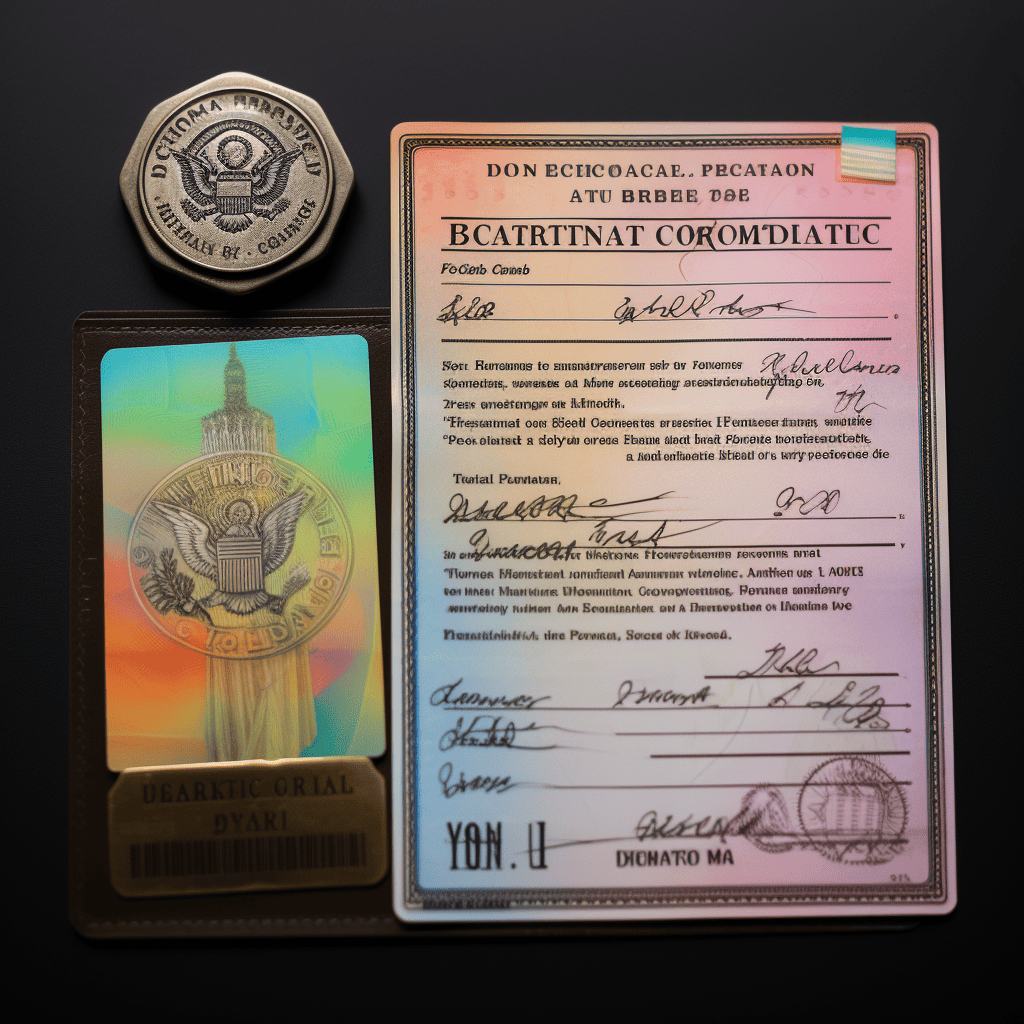
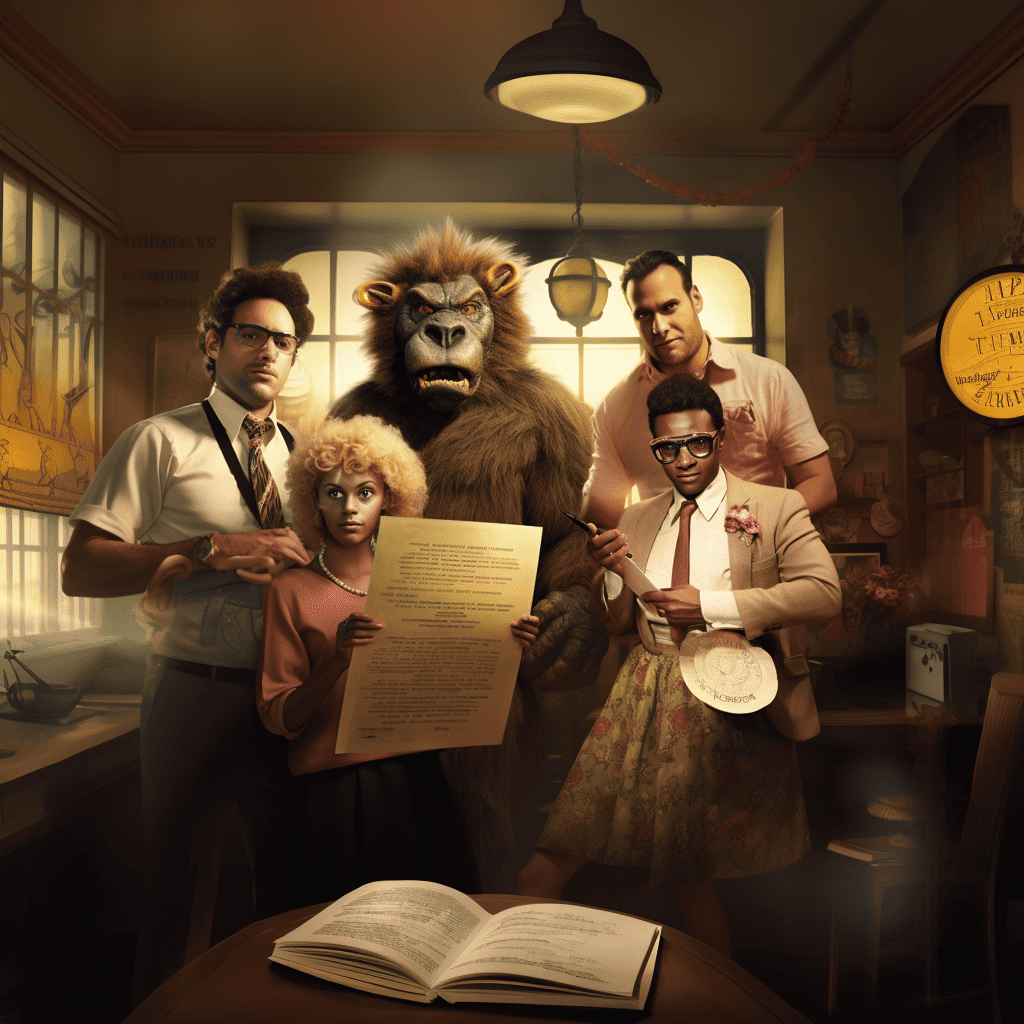

Images generated by Midjourney prompt: “A license to discriminate” from Biden's remarks
And then, oddly, the U.S. Supreme Court agreed to hear the Alliance's appeal for Smith's case and, in doing so, stipulated that the only question it wanted to hear arguments about was “Whether applying a public-accommodation law to compel an artist to speak or stay silent violates the Free Speech Clause of the First Amendment.”
On its face, the answer seemed obvious: Of course, it does. The court's question presumed Colorado applied the state law to “compel” Smith to “speak or stay silent.”
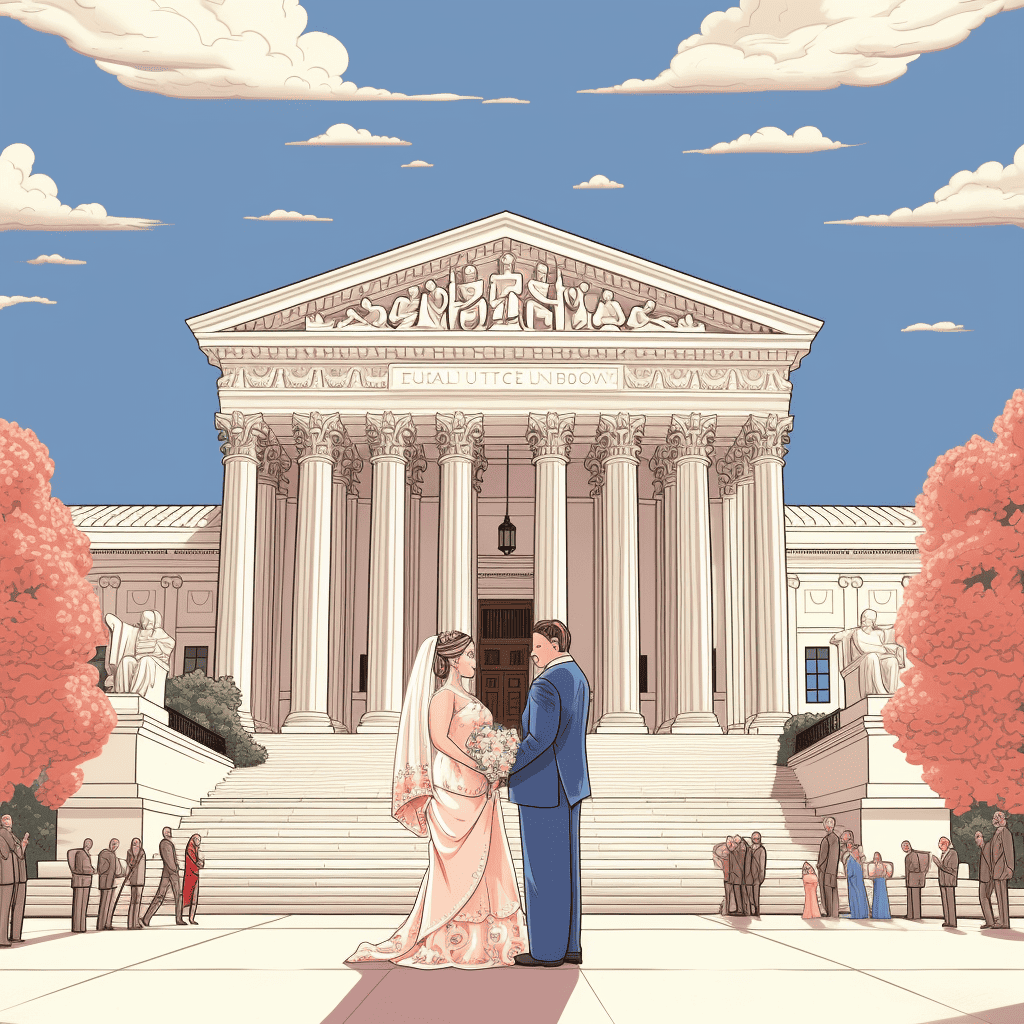
As ACLU legal director David Cole said in a New York Times guest column last December, “The right question is whether someone who chooses to open a business to the public should have the right to turn away gay customers simply because the service she would provide them is ‘expressive' or ‘artistic'.”
The Future of Discrimination Laws: 303 creative llc v. elenis prediction
“President Biden's Concern: The Potential for Increased Discrimination Against LGBTQI+ Americans”**
On its face, the court's decision seemed to agree. “When a law prohibits or compels expressive conduct or intrudes on a speaker's editorial control,” wrote Justice Neil Gorsuch for the majority, “it must satisfy ‘strict scrutiny.'” But Justice Gorsuch also noted that the Colorado law prohibited Smith from “declining any request to design and create wedding websites for same-sex marriages.”
President Biden immediately expressed his concern with the decision. “By carving out a new ‘license to discriminate' for businesses that claim to engage in ‘expressive' or ‘artistic' services,” said Biden in a statement, “this decision threatens to undermine critical non-discrimination protections for LGBTQI+ people. It means that a small business can refuse service to a same-sex couple because of the owner's religious beliefs.”
First Amendment Controversies: The Fear of an Increasingly Religious Government
He and many others worry that the decision could be used by conservatives to justify broader exemptions to laws prohibiting discrimination based on sexual orientation. And, in some cases, the majority opinion suggested that even laws prohibiting discrimination on race could be undermined. Gorsuch's opinion did note that states have a compelling interest to “ensure equal access to goods and services” but that the law should not “interfere with a person's First Amendment rights.”
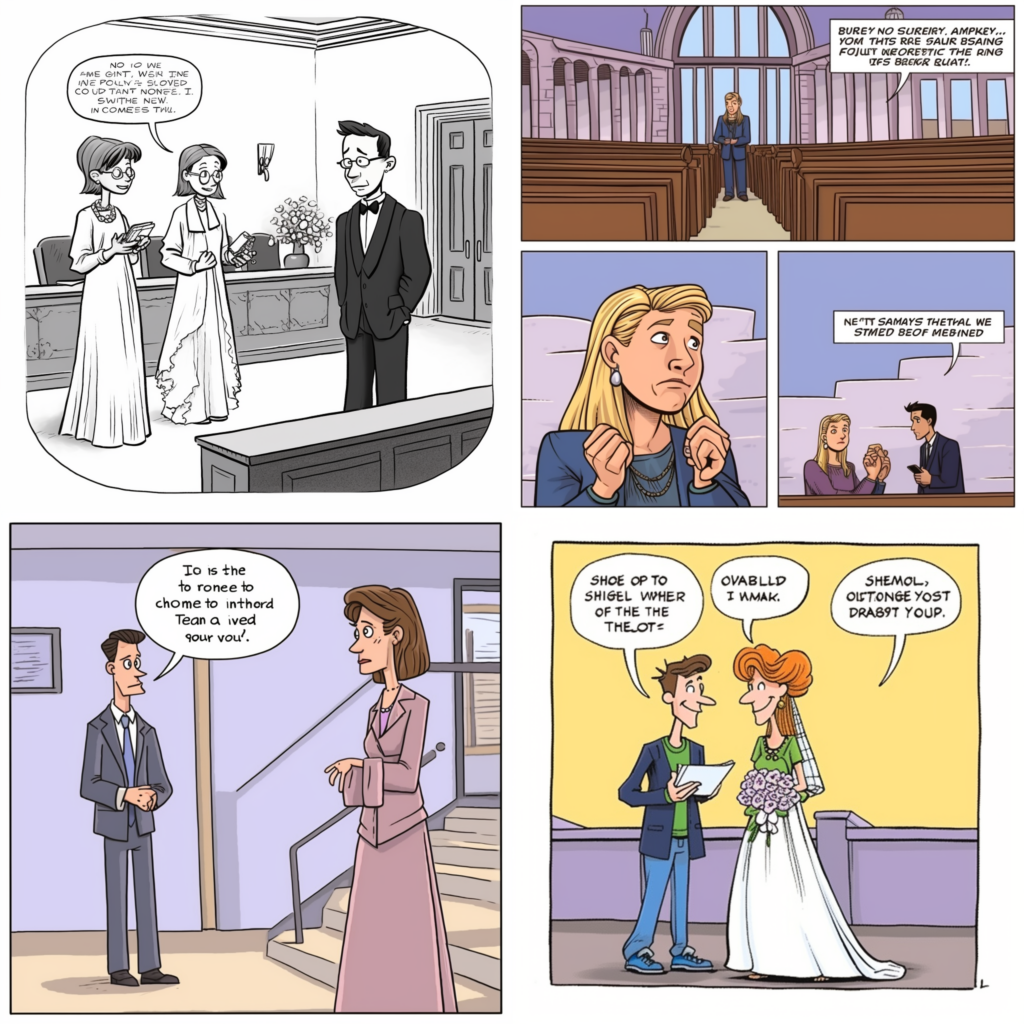
Questionable Claims: Examining the Alleged False Information Presented by the Alliance
Legal groups were quick to point out that Gorsuch's opinion contained at least two pieces of false information. One was that Colorado was forcing Smith to express “messages that she finds objectionable.” The state never forced Smith to create a message; it only required her to treat all customers equally. The other was that Colorado “admits that other businesses may deny service based on a customer's protected characteristics.”
Impact of Elenis 303 creative will be felt immediately in the 22 states, including Colorado, that have laws prohibiting discrimination based on sexual orientation in public accommodations
That information came from the Alliance which alleged that Colorado officials said a black designer could refuse to create a website criticizing the Black Lives Matter movement, and a Muslim designer could decline to create a website disparaging the Quran. There was no record of any such statements.
A Broader Perspective: The Status of Anti-Discrimination Laws Across the United States
In the end, what does the decision mean? Its impact will be felt immediately in the 22 states, including Colorado, that have laws prohibiting discrimination based on sexual orientation in public accommodations. These are the laws that enabled same-sex couples to secure wedding cakes, flowers, and other services from businesses open to the public.
But those states cover just 50 percent of the population. The other half of Americans live in states with no such protections. So, 303 Creative will likely have little impact there, unless those states eventually pass such laws.
© 2023 Keen News Service. All rights reserved.
Images created with AI tools. See Nerd Notice above
Nerd Note on Illustrations
The illustrations with Lisa Keen's reporting on the 303 Creative decision were generated without the author's participation with Midjourney based on a mix of prompts related to the case like “Imagined Gay couple — look like updated Jesus — tells Lisa Smith, a web designer, that heck will freeze over before their party planning artistry will be used to launch her fantasy of a business. Discriminating and the cynical manipulation of the legal system offends their strong beliefs/religion.”
See below for what the prompt based on Biden's reference to a “license to discriminate” produced.
AI systems are based on broad ingestion of cultural materials, so the results can be intriguing, but also represent a complicated mash up survey of how humans feel about, think about, and represent all these concepts while living up to the expectations of other humans. We edited images that just didn't get it. (Prompts = about a a gay couple and their wedding produced male/female at the altar images if the two concepts were not directly adjacent in the sentence.). Don't take too much from it all. Enjoy. Respond directly or in comments.



